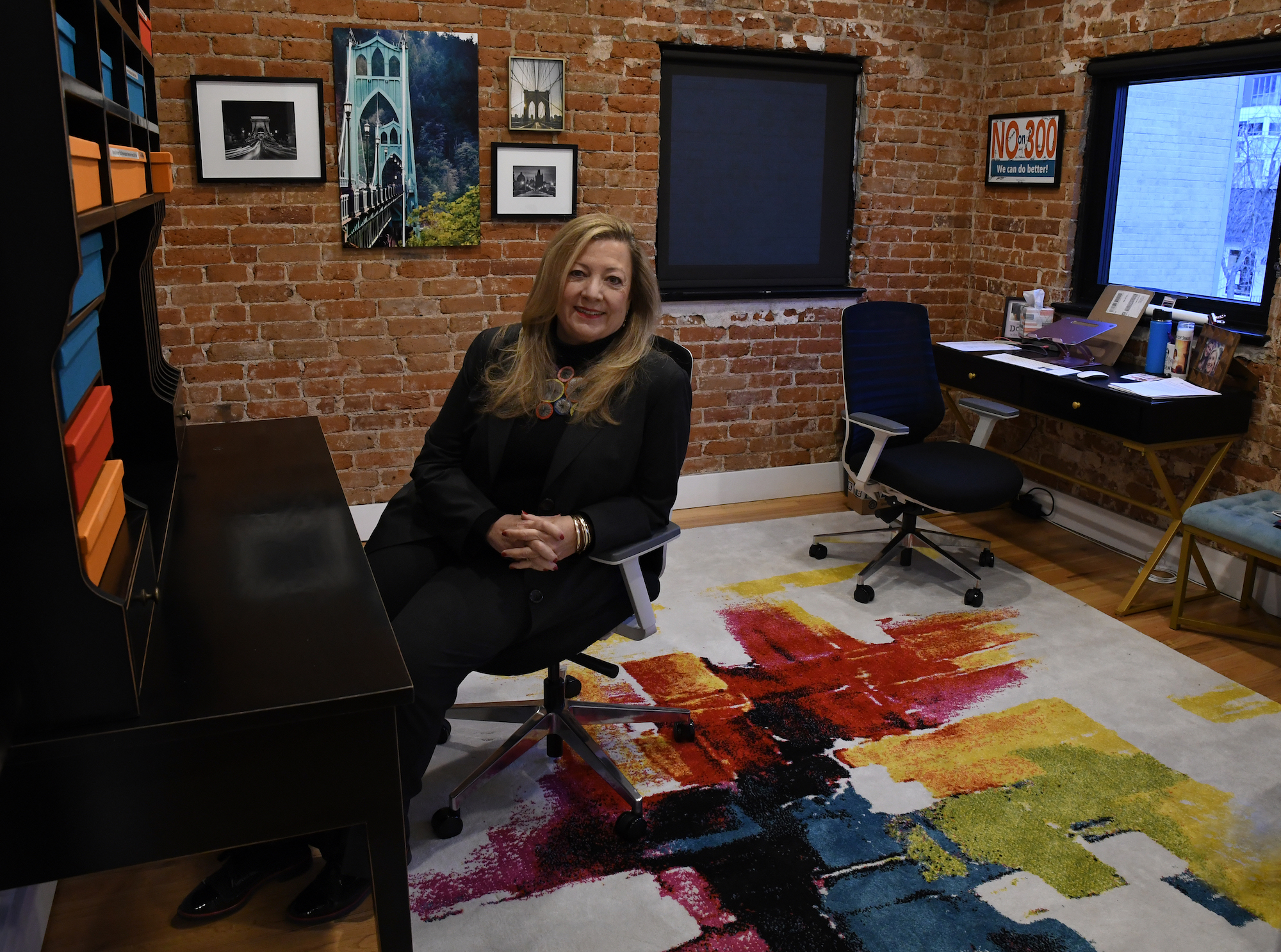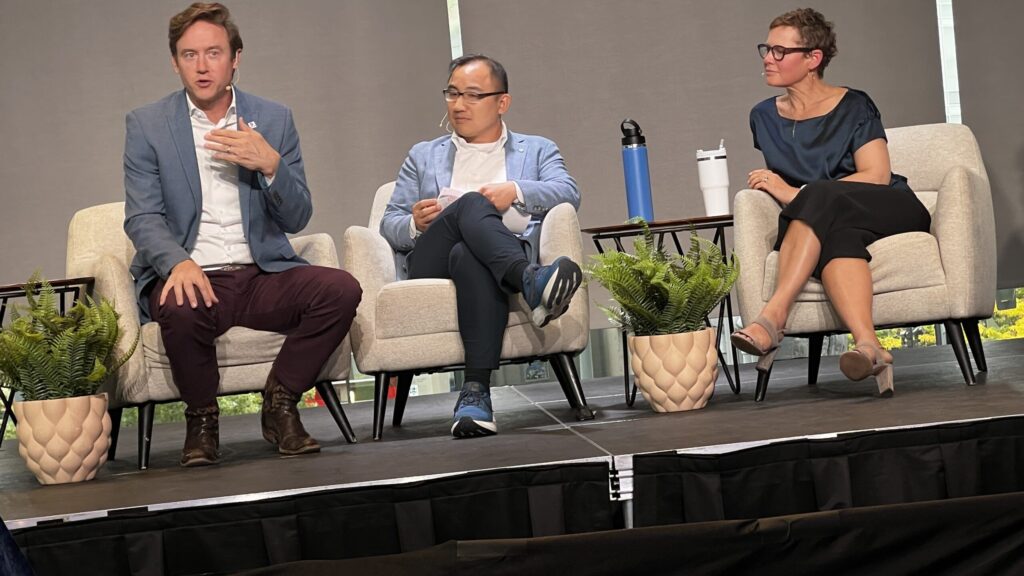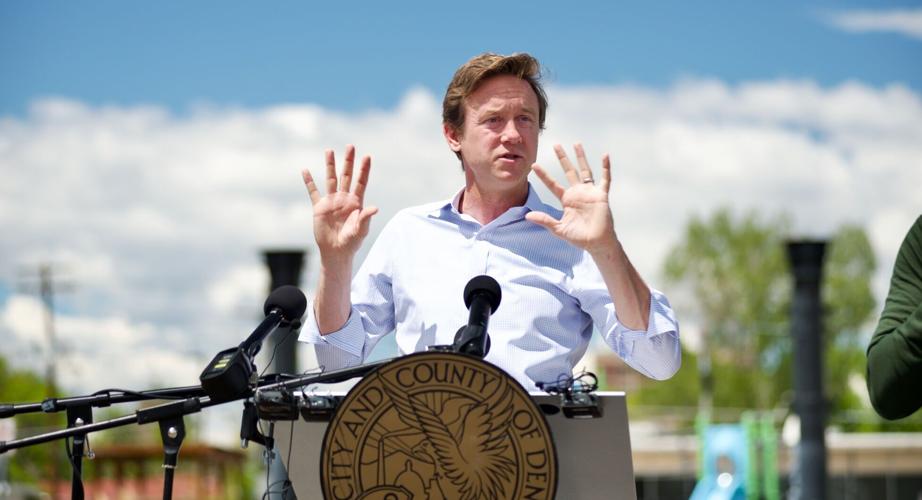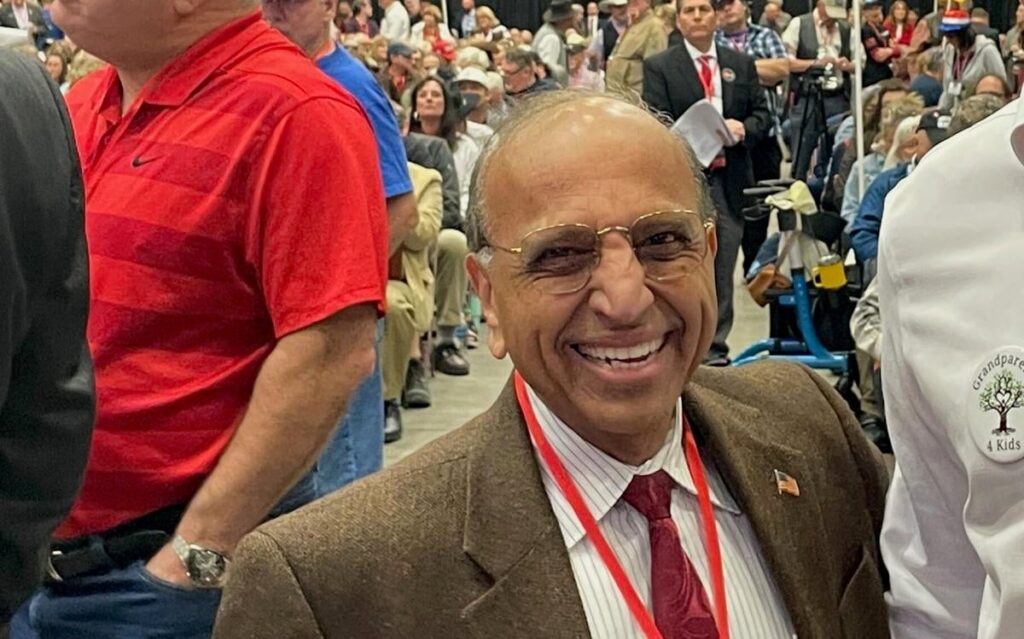Q&A with Maria Garcia Berry | Cuban immigrant rewrites Colorado history

In Colorado politics, Maria Garcia Berry gets the job done, whatever the job might be.
Most often, they’re the biggest jobs in town.
Between her and husband, Chuck Berry, a former 14-year state legislator and speaker of the House, the Berry name is written in the footnotes of Colorado history over the last four decades.
It was 1981 when she founded CRL Associates, a firm that works for such clients as Xcel, Comcast, the Association of Realtors and the Union Station redevelopment, among many. The company’s motto? Experience without equal.
Garcia Berry, however, cut her political teeth under the Capitol’s gold dome for the governor’s office.
“My biggest problem being a legislative lobbyist for Dick Lamm wasn’t the legislature,” she confided recently about her time with the late Democratic governor. “It was the fricking bureaucracy.”
She would try to affect change, and “the bureaucrats would look at you and say, ‘Yeah, yeah, maybe not. You know, we’ll still be here and you guys will be long gone.'”
Garcia was just 24 then, almost the youngest person on the governor’s staff – except one, Eric Sondermann, today the city’s most-noted political analyst (and a Colorado Politics columnist).
“He made a big deal out of it,” she said of the pundit with a laugh. “Sondermann and I were always kind of competitive with each other at the governor’s office.”
Garcia Berry is in transition again. Not retiring, she’s quick to point out, but “transitioning the company into other ownership.” That is, to her partners: Kim Kucera, Sean Maley and Roger Sherman.
“I think the biggest legacy I could have is that CRL could continue without me down the road,” she said, on her way to a meeting with the National Western Stock Show, adding, “I’m still gonna do some work. I don’t want to necessarily leave. I still have projects I love, and I could now do that a little bit more and, hey, look, they’re running the operating side of the company.”
Her husband, however, announced last March that he’s retiring as president and CEO of the Colorado Chamber of Commerce at the end of the year after more than two decades in charge.
“All my girlfriends whose husbands have retired have advised me that they need to figure it out on their own first, before I retire,” Garcia Berry said. “I’m not going to be home making lunch every day.”
Garcia Berry revels in the grind.
“I’m a really good project person, so give me a really hard, tough, ugly, difficult, challenging project,” she said. “Not all of them have been successful, but most of them have.”
Her work ethic comes from her family.
Garcia Berry emigrated to the U.S. as a child as part of Operation Peter Pan, when more than 14,000 children left the island as Fidel Castro rose to power from 1960 to 1962.
She was one of the lucky ones, Garcia Berry said, because there was a godparent in Miami waiting to take her in, until her parents could join her.
“My dad and mom always said, ‘Look, you gotta do what you gotta do. Every job has value, every job has respect. My dad became a janitor, my mother ironed by the piece, because she loved ironing, a trait I did not inherit, and and basically babysat kids,” she said.
Her mother had been a teacher in Cuba. Her father was an accountant.
“Dad couldn’t speak English, so he said, ‘I’ll learn how to clean floors,’ but I think one of the things that (upbringing) makes you is very pragmatic as to what it is that you have to do,” Garcia Berry said. As an immigrant, she said, “you become very observant as to how people behave and how they respond, and you basically figure out what you have to do to kind of survive.”
Garcia Berry continues to honor her heritage, doing what she does best: work for better relations. She serves on the boards for Denver’s Biennial of the Americas, the Cuba Emprende Foundation and the national Cuba Study Group.
Colorado Politics quizzed Garcia Berry with our usual fare. This is what she else told us.
Colorado Politics: When you and Chuck debate, who’s the expert?
Garcia Berry: It depends on who you ask. We have great, great, robust conversations. It took us 55 minutes to vote, not on people but issues. We nearly got kicked out of a restaurant in London. We were talking about Elián Gonzalez (the 7-year-old Cuban boy whose mother drowned trying to reach the U.S. and he was saved by fishermen. The Clinton administration returned him to his father in Cuba in 2000, sparking an international controversy).
My kids had a different view. I had a different view. My husband had a different view. Eventually a [person] who worked at the restaurant came to our table and said, “Could you all either leave or keep it down?” So we had to shut up for a while.
CP: How has Colorado politics changed since you’ve been around? Is it better or worse?
Maria Garcia Berry: I am a pragmatist. I got taught that you have to deal with the hand that you are dealt. When you work in the world that requires decisions or actions by public officials who are accountable to the public, you will be working in a very dynamic environment. I don’t think they are better or worse, they are just different. In some instances it is better and in others worse. Keep in mind that 40 years ago we did not depend on cell phones. Laptops and iPads were not heard of. If you were one of the cool kids you had a pager. I don’t think I had my first cell phone, the size (of a brick) like the one that Michael Douglas had in “Wall Street,” until about late 1986. By the way, it is still the same number. So, communications moved a bit slower. We were very dependent on faxes and face-to-face communications. The internet and email were in development. The ability for stakeholders to communicate rapidly with electeds was not instant, like it is today. CNN had just started the year before, so the 24-hour news cycle had just been born.
For me the demise of the newspaper business is a negative. I passionately believe that having a robust and strong competitive press makes for better public policy, even if at times I have been taken to task more than once by one of the papers. The strong presence of reporters having one-on-one conversations, other than through text or email, was a very good moderating factor. The importance of the next day’s headlines and the impact it could have was invaluable.
CP: Are the challenges in politics different?
Garcia Berry: The overall challenge that I have with politics today is that no one stops and tries to understand what came behind them and what was done or accomplished and understanding the context of decisions. Not everything is black and white. I live in the shades of gray. Public officials who have no intellectual curiosity are a challenge. You will be a better official if you understand where someone is coming from. You don’t have to agree with them, and you can rip into their issue at the mic or with an article, but do it on substance. (Former Denver Mayor) Wellington Webb taught me that early as my first direct supervisor. I would get all fired up wanting to go after someone, and he would just tell me to cool my Latin temper – maybe we could work together with them. (Former Denver Clerk and Recorder) Arie Taylor was also extremely good at that.
CP: What made you want to get into this crazy line of work to begin with?
Garcia Berry: I started working at the legislature as an intern in 1973, then got hired as a part-time researcher with the House Democrats in 1974. When the House Democrats took control, I became the chief of the Democratic House research staff – me staffing 39 electeds. That was a lot of fun, I say sarcastically; 39 unique personalities that had just for the first time in 15 years come to be in charge. Ruben Valdez, who I had interned for became speaker, and Wellington Webb became caucus chair, and he was my direct boss. Lamm had become governor and I had worked for him as a volunteer before he started walking the state in 1973. I fell in love with the give-and-take and the process of the General Assembly. I was inside the chambers so I got to observe the very critical dynamics that occur between electeds. I got a PhD in poli sci in real time. I also have great stories.
After the Ds lost the House in the ’76 election I went to work for the Senate, which was split 17D/18R, but [with) a lot of big personalities. I learned a lot and then within a year I got hired by Lamm to be his chief budget lobbyist working with (then-Lt. Gov.) Bob Knous and many others. I thought once I got into the executive branch I would become a career senior-level public servant. Four years of the governor’s office cured me of that. Shortly after I got to the gov’s office, it was re-election time. Jim Monaghan was going to run the ’78 effort, and in typical JM fashion, did not ask but informed me when my start date at the campaign was. It was grueling but a hell of a lot of fun. We were behind in early September running against Ted Strickland and ultimately won 60/40. This was a race about Lowry AFB, air pollution and calf roping, one for the books.
CP: Who were your early mentors?
Garcia Berry: Rich Castro, Ruben Valdez, Paul Sandoval, Polly Baca in 1972. The McGovern race had some amazing women who I met who really knew how to run politics: Evelyn Davidson, Jean Graham, Jean Galloway, Lee Hart. Then, of course, Dick Lamm. Best. Boss. Ever.
CP: What is the most common mistake made by people trying to make a difference, and how do they avoid it?
Garcia Berry: Assuming that just because someone does not agree with you that you can never work with them or find common ground. They need to mature and be confident in their thought process. It is easy to label someone and be dismissive. It is much harder to understand their perspective and try to see if there is value in working together in order to get something done. That is hard damn work.
CP: There’s nobody I know more connected than you. How do you go about building the kind of network you have? As long as you’ve been around, is your friends list longer than your enemies list?
Garcia Berry: I do believe that my friends list is much longer. My list of people I consider enemies is short. First, why waste all that negative energy? One of the things that you learn in the legislative process is if you want to get something done you need to lean in, both with your colleagues and with stakeholders.
I believe that I have leaned in civilly and with many varied individuals, who at times have needed my help.
CP: In the campaigns where you failed was there a common denominator? Do you think you have any political blind spots?
Garcia Berry: Yes, not giving ourselves enough time; at times not listening to my gut and silencing it for the sake of cooperation.














